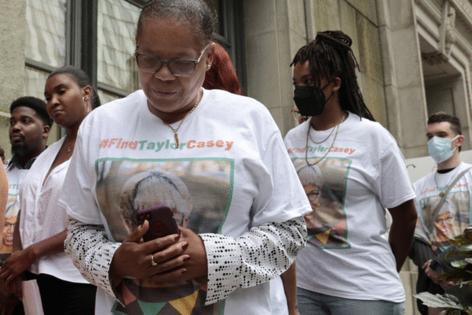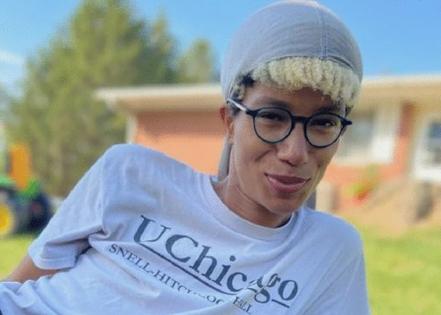Commentary: A Black trans Army veteran vanished in the Bahamas. Why won't her country help find her?
Published in Op Eds
Five months ago, Taylor Casey, a 42-year-old Black trans woman from Chicago, vanished from a popular tourist destination, the Sivananda Yoga Retreat Center Bahamas, an ashram once endorsed by Gwyneth Paltrow’s wellness company Goop.
Casey is not just a statistic. She is an Army veteran who served her country and a leader who served her community by developing youth programs at the Chicago Freedom School and facilitating HIV testing and prevention at the Howard Brown Health Center. And now, the country she fought for is failing her with its apathy to her case. Considering that Americans around the world saluted Veterans Day this month, it is essential to remember that all veterans, regardless of identity, deserve attention and respect.
There was immediate national outcry when Gabby Petito, a young white woman, disappeared on a cross-country trip with her fiance in the summer of 2021. The media covered the case around the clock, and the story dominated social media feeds. And what is most telling: The FBI swiftly intervened. Federal, state and local officials launched a coordinated effort that, although it came to a tragic end, gave Petito’s loved ones the closure they deserved. The urgency, the priority and the dignity afforded to her case stand in stark contrast to Casey’s.
Despite pleas from Casey’s family, the U.S. government has taken no action to hold the Bahamian police accountable or to intervene in this investigation. This indifference is especially egregious given the steady flow of U.S. tourism to the Bahamas — more than 5 million visitors annually— and the known threat of human trafficking on the island, with around 25 cases reported in recent years. Casey is an American citizen, but she has not been treated as one deserving of protection abroad.
In the aftermath of Casey’s disappearance, Bahamian authorities launched a perfunctory investigation. Casey’s family believes that the Royal Bahamas Police Force failed to properly process her tent as a crime scene. According to her family and close friends, police did not collect evidence such as fingerprints or Casey’s personal belongings. Other attendants at the ashram reported not being questioned or, at the very least, being made aware that Casey had been reported missing. In fact, her disappearance was not even publicized locally. Casey’s face was absent from the missing posters wall in the police bureau when her family visited Nassau. Shockingly, the police chief overseeing Casey’s investigation was placed on leave after being accused of accepting bribes in a different case.
Casey is not the first person to disappear from this ashram. Other American citizens have vanished, and at least 14 women have come forward with allegations of abuse — coercion, rape and misconduct — by senior teachers at various Sivananda locations, as documented by a BBC investigation and the ongoing investigation of Project Satya.
The systemic violence Black trans women face, at home and overseas, is undeniable. Last month, a Texas man was accused of using a dating app to kidnap and assault trans women. From 2017 to 2021, killings of trans people nearly doubled in the U.S., with Black trans women most at risk, according to data from the nonprofit Everytown for Gun Safety. And across the world, 320 trans and gender-diverse people were killed in 2023, according to the Trans Murder Monitoring report— again, the majority of victims were Black, and most were trans.
Despite these disproportionate rates of violence against trans people, Casey’s case has been met with inaction and silence by the American institutions meant to protect her.
We cannot allow the U.S. government to turn its back on one of its most vulnerable citizens. Time is running out. Casey’s loved ones deserve more than indifference to their cries for help. Casey deserves justice, and we must demand it.
____
Emily Williams is executive director of the Arcus Center for Social Justice Leadership and is a published scholar on gender and race.
___
©2024 Chicago Tribune. Visit at chicagotribune.com. Distributed by Tribune Content Agency, LLC.































































Comments